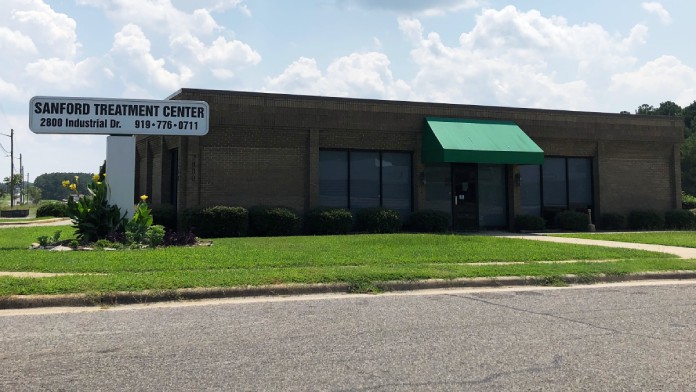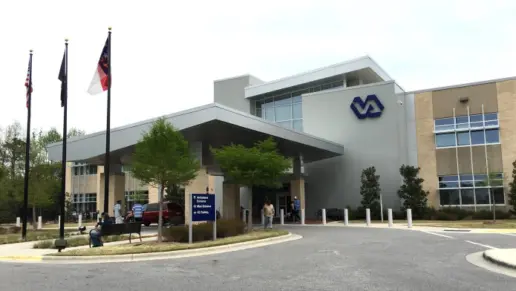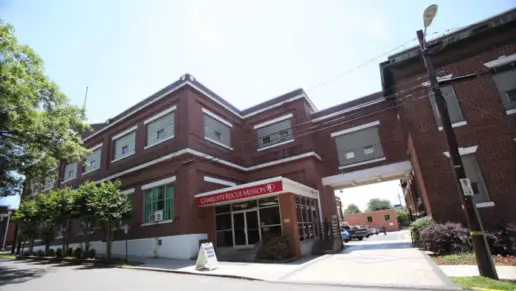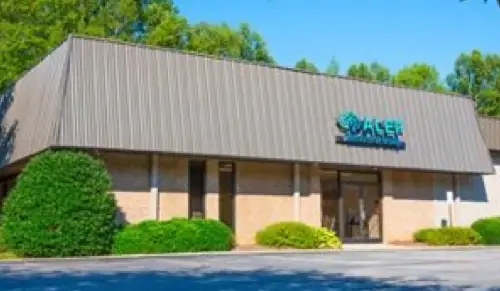About Sanford Treatment Center
Sanford Treatment Center is located in Sanford, North Carolina. They have an outpatient center to help people battling heroin and opioid addiction and welcome all adults who qualify. Their goal here is to end your addiction with withdrawal treatments and dedicated therapists. They focus on using methadone and buprenorphine along with counseling and therapy to help battle addiction.
Along with medication they use holistic methods to help ease your symptoms from withdrawal and cravings to use again. They believe this dual approach is more successful than methadone or buprenorphine alone in fighting opioid addiction. Their treatment methods also look to lift your mood and improve social behaviors which they believe is extra beneficial in rehab settings.
You’ll get group counseling, drug education and access to community resources combined with methadone which they call MMT or methadone maintenance treatment, to help you get clean and create a personalized plan to thrive in all areas of life.
Here they look to provide therapy and counseling including help with mental and behavioral health issues from trustworthy nurses and American Society of Addiction Medicine, ASAM certified medical doctors in a safe and clean environment to help put you on the path to recovery.
One former patient here said that if it weren’t for this treatment center they’d still be in bed with pain and tears wondering where life was going to take them and the staff are excellent and kind. Another patient said deciding to go there was one of the best things they’ve done.
It should be noted that they now accept clients with Medicaid coverage.
Latest Reviews
Rehab Score
Gallery

Location
Accepted Insurance
Other Forms of Payment
Self-pay involves paying for treatment out of your own pocket. You can use savings or credit, get a personal loan, or receive help from family and friends to fund your treatment. If you don't have insurance or your insurance plan doesn't cover a specific program, self-pay can help ensure you still get the care you need.
Addiction Treatments
Levels of Care
Treatments
The goal of treatment for alcoholism is abstinence. Those with poor social support, poor motivation, or psychiatric disorders tend to relapse within a few years of treatment. For these people, success is measured by longer periods of abstinence, reduced use of alcohol, better health, and improved social functioning. Recovery and Maintenance are usually based on 12 step programs and AA meetings.
There are many types of drug rehab in North Carolina. To receive treatment for addiction, you can choose from many inpatient and outpatient programs. Often, participants start with detox and work through a full continuum of care that continues with ongoing support for long-term recovery.
Opioid rehabs specialize in supporting those recovering from opioid addiction. They treat those suffering from addiction to illegal opioids like heroin, as well as prescription drugs like oxycodone. These centers typically combine both physical as well as mental and emotional support to help stop addiction. Physical support often includes medical detox and subsequent medical support (including medication), and mental support includes in-depth therapy to address the underlying causes of addiction.
Substance rehabs focus on helping individuals recover from substance abuse, including alcohol and drug addiction (both illegal and prescription drugs). They often include the opportunity to engage in both individual as well as group therapy.
Programs



Clinical Services
Group therapy is any therapeutic work that happens in a group (not one-on-one). There are a number of different group therapy modalities, including support groups, experiential therapy, psycho-education, and more. Group therapy involves treatment as well as processing interaction between group members.
Trauma therapy addresses traumatic incidents from a client's past that are likely affecting their present-day experience. Trauma is often one of the primary triggers and potential causes of addiction, and can stem from child sexual abuse, domestic violence, having a parent with a mental illness, losing one or both parents at a young age, teenage or adult sexual assault, or any number of other factors. The purpose of trauma therapy is to allow a patient to process trauma and move through and past it, with the help of trained and compassionate mental health professionals.
Accreditations

The Substance Abuse and Mental Health Services Administration (SAMHSA) is a branch of the U.S. Department of Health and Human Services. Established in 1992 by congress, SAMHSA's mission is to reduce the impact of substance abuse and mental illness on American's communities.
SAMHSA Listed: Yes
Contact Information
2800 Industrial Drive
Sanford, NC 27332



